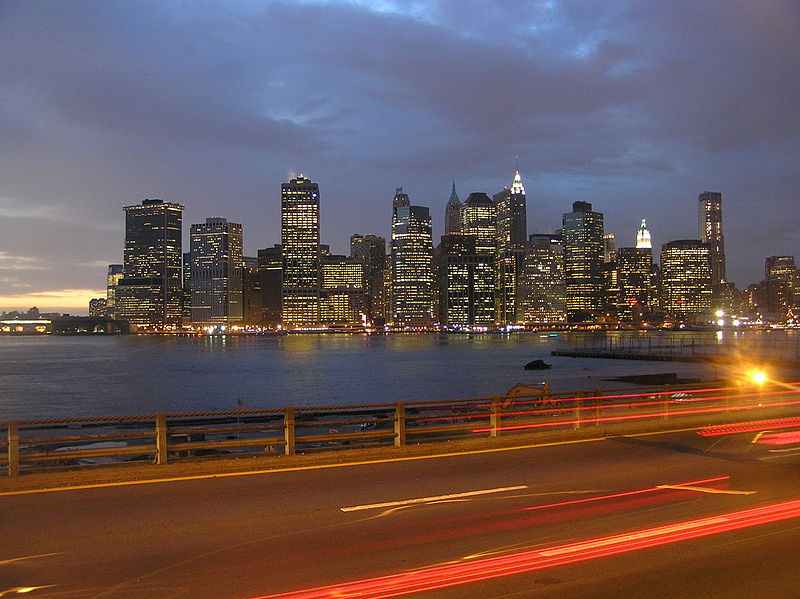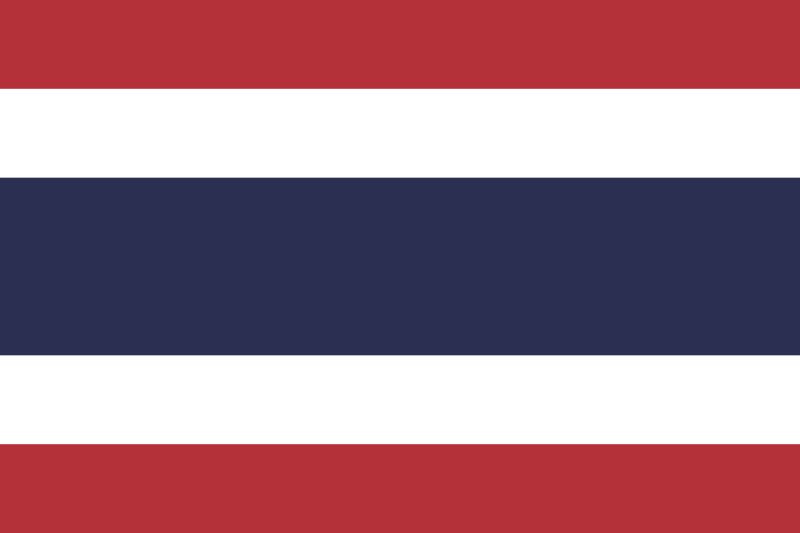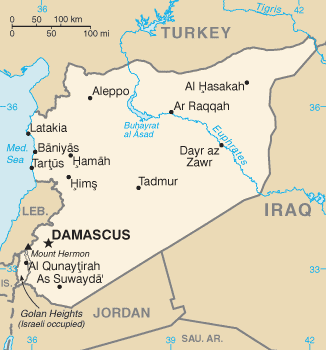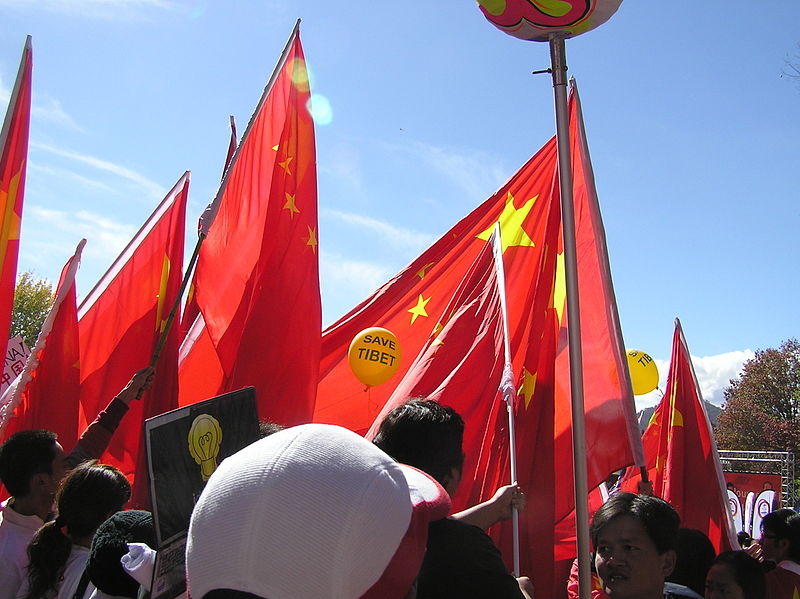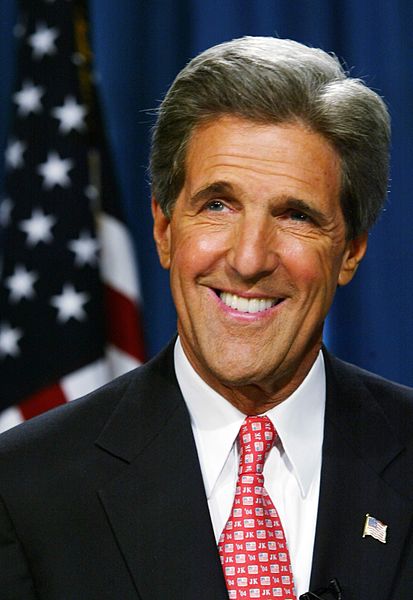Politics & Current Affairs
All Stories
A defiant president Bashar al-Assad warned against outside interference in Syria and shrugged off international criticism in a live interview with state television on Sunday night.
Recent crises in the west like America’s debt debacle and London’s riots have lent the east some moral authority, but the triumph of eastern nations is anything but guaranteed.
Lawmakers and doctors are rushing to find remedies for critical shortages of drugs that treat life-threatening illnesses like bacterial infection and several forms of cancer.
As the manufacturing industry left American metropolises for the east, our cities became something even greater: idea factories. Cities are the engines of innovation and they are growing.
King Farm in Rockville, Md., could be an example of ‘new urbanism’ and ‘smart growth’ but instead locals are opposing one of the key elements—a central shuttle train.
China’s oil trade with Africa is dominated by an opaque syndicate. Ordinary Africans appear to do badly out of its hugely lucrative deals with governments in Angola and Zimbabwe.
Despite the high-wire histrionics in Washington over the debt ceiling and America’s recent credit rating downgrade, the economic crisis is fundamentally about jobs and prosperity.
As 300,000 people gathered over the weekend to protest rising wealth inequality in Israel, organizers said they are planning a million-strong march in 50 cities next month.
Nobel Laureate Gary Becker and Appeals Court Judge Richard Posner weigh in on the international threat of cyber attacks. They say new international laws are necessary.
Middle Eastern powers like Saudi Arabia are voicing their opposition to the continuing state-sponsored violence in Syria. Government tanks have rolled into the eastern town of Deir al-Zour.
Americans who had subliminal exposure to the national flag before being asked their political views expressed more of a tendency to vote Republican than those who hadn’t.
Such a protracted legal process is required to make health claims about certain foods that the only the pharmaceutical industry is trusted as the arbiter of what is healthy.
Yingluck Shinawatra, sister of ousted former Prime Minister Thaksin Shinawatra, faces the opposition of palace and military factions who see her brother as a usurper of royal privileges.
Nearly killed escaping his native Syria for Lebanon, Rami Nakhle continues to unite activists who oppose the ruling Assad regime despite harassment and threats against this life.
In a time of fiscal austerity, New York City Mayor Michael Bloomberg will fund an initiative to give black and Latino men more access to the City’s civic, educational and economic resources.
The popularity of new Internet-connected electricity meters in people’s homes, which indicate when electricity is cheapest to consume, could create dangerous spikes in demand.
After tens of thousands of Israelis took to the streets to demonstrate against rising housing prices and the high cost of living, the government has agreed to meet with the protesters.
The Syrian government has killed nearly 142 people, including at least 100 when the army stormed the protest city of Hama to crush dissent on the eve of Ramadan, political activists say.
Qassem Suleimani is the elusive Iranian general who has the power to orchestrate Iraqi politics without showing his face. He is everywhere and nowhere at once, say American soldiers.
Meetings can be the bane of corporate life, yet they are essential to effective decision making and execution and thus to business results. So how can they be improved?
Cyber espionage and nation-state-backed hacking incidents appear to be increasing in frequency and severity. What once seemed the province of Hollywood has become real.
A lone Norwegian man has carried out the largest attack against his country since World War II, exploding a bomb in the capital of Oslo and attacking a camp of Labor Party children.
State failure, it appears, does not necessarily go hand in hand with other human woes, such as poverty. Some countries with rising incomes remain plagued by poor governance.
The credit agency Moody’s has slashed the Greek government’s debt ratings into junk territory, warning that the nation’s newest bailout deal implies a sovereign default.
Next year is the latest deadline set by the Global Polio Eradication Initiative (G.P.E.I.), the multinational body charged with dealing with the disease. A new report says this deadline is at risk.
Egypt’s new cabinet is set to be sworn in after a reshuffle that protesters say has only partially satisfied their demands for deeper political and economic reforms.
University of Oxford professors Ian Goldin and Geoffrey Cameron argue that both receiving and sending countries benefit from the migration of people in an interconnected world.
Forget financial markets, forget religion, forget the U.N., forget the advance of democracy. Stephen Walt says nationalism—the defense of a culture within geographical borders—still rules.
The Dutch-born biologist Frans de Waal has chosen to study not what makes humankind vile and mean but rather what causes us to rise up in support of others, i.e. our moral potential.
Passed over for the Secretary of State position, John Kerry has fashioned an active role for himself as a diplomat and foreign policy adviser to Obama. Will he get the job in 2012?



